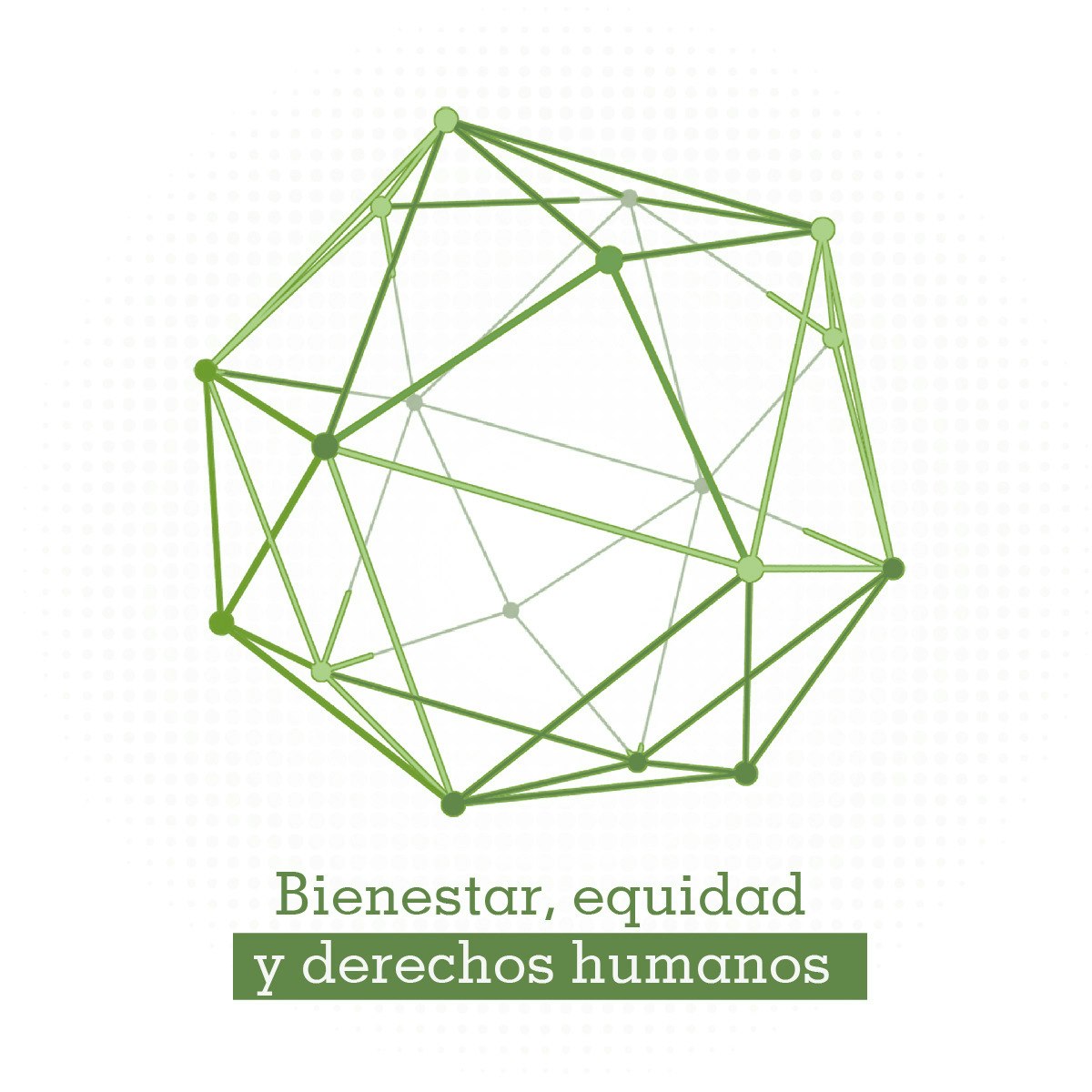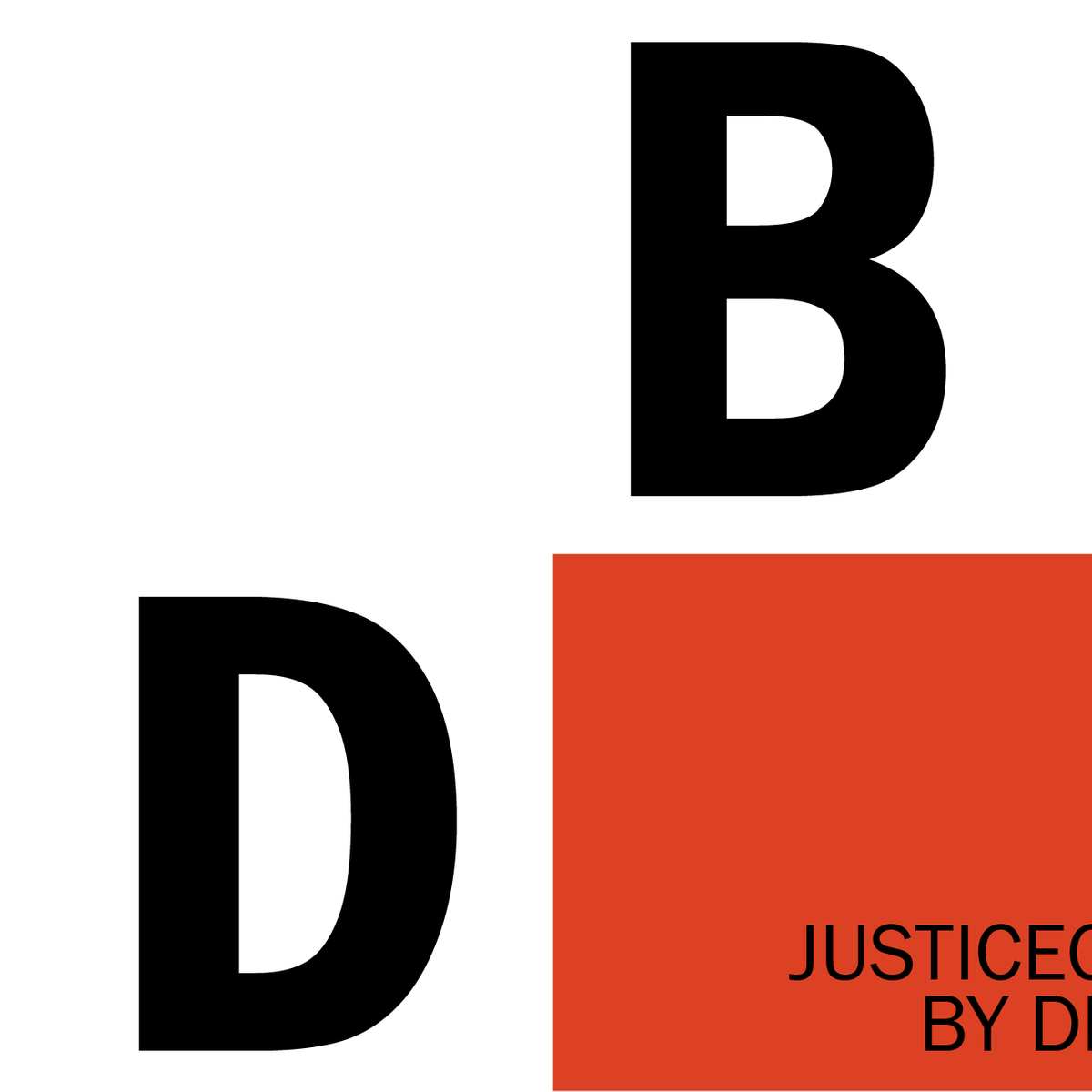Social Justice Advocate
Career Guide: Social Justice Advocate
A Social Justice Advocate works to address systemic inequalities and promote fairness within society. They champion the rights of marginalized or disadvantaged groups, working towards a world where everyone has equitable opportunities and treatment, regardless of their background.
This role involves understanding complex social issues, identifying root causes of injustice, and developing strategies for change. Advocates often work on issues like poverty, discrimination, human rights, environmental justice, and access to education or healthcare.
Pursuing a career in social justice advocacy can be deeply rewarding. It offers the chance to make a tangible difference in people's lives and contribute to positive societal transformation. Engaging with diverse communities and tackling challenging problems head-on can be both intellectually stimulating and emotionally fulfilling.
Understanding the Role of a Social Justice Advocate
Social justice advocacy is fundamentally about promoting fairness and equity. It rests on principles like human rights, access to resources, participation in society, and solidarity with vulnerable populations. Advocates work to dismantle barriers that prevent people from reaching their full potential.
This work requires a deep understanding of power structures, historical context, and the interconnected nature of social problems. Advocates strive to empower communities, amplify unheard voices, and hold institutions accountable for their impact on people's lives.
These courses provide a foundational understanding of the core concepts underpinning social justice work, such as poverty, inequality, and human rights.
Defining the Core Mission
The central mission of a social justice advocate is to challenge and change systems that perpetuate inequality. This involves identifying unfair policies, practices, or social norms and working to reform them. It's about creating a more just distribution of resources, opportunities, and power.
Advocates often focus on specific areas, such as racial justice, gender equality, LGBTQ+ rights, disability rights, or economic justice. They analyze how different forms of oppression intersect and affect individuals and communities in unique ways.
Ultimately, the goal is to foster a society where everyone is treated with dignity and respect, and where systemic barriers to well-being are removed. This requires persistent effort, critical thinking, and a commitment to long-term change.
Understanding historical context and different forms of discrimination is crucial. These resources delve into specific areas like anti-racism and gender identity.
These books offer deep dives into the structures of power and inequality that advocates often confront.
Historical Roots and Evolution
Social justice advocacy has deep historical roots, intertwined with movements for civil rights, labor rights, women's suffrage, and anti-colonialism. Throughout history, individuals and groups have organized to challenge oppression and demand equality.
Figures like Martin Luther King Jr., Rosa Parks, Nelson Mandela, and countless others exemplify the spirit of social justice advocacy. Their efforts, often met with resistance, paved the way for significant legal and social changes.
The methods and focus of advocacy have evolved. Early movements often relied on protests and civil disobedience. Today, advocacy also involves sophisticated policy analysis, legal challenges, digital campaigning, and community organizing, reflecting changes in technology and society.
Goals and Societal Impact
The primary goal of social justice advocacy is to create lasting positive change. This can mean reforming laws, changing public attitudes, ensuring equitable resource distribution, or empowering marginalized communities to advocate for themselves.
Successful advocacy can lead to landmark legislation protecting rights, increased funding for essential social services, greater representation of diverse groups in positions of power, and shifts in cultural norms towards inclusivity.
The impact extends beyond specific policy wins. Advocacy fosters civic engagement, strengthens democratic processes, and contributes to a more informed and empathetic public discourse. It helps build communities where people feel valued and supported.
Understanding how to effect change within social work and community settings is key.
Addressing Common Misconceptions
One common misconception is that social justice advocacy is solely about protest or activism. While direct action can be a component, advocacy encompasses a broad range of activities, including research, education, policy development, and legal work.
Another misconception is that advocates are always confrontational. Effective advocacy often involves building coalitions, engaging in dialogue, and finding common ground, even with those who hold different views. Strategic negotiation and collaboration are vital skills.
Some may believe advocacy work doesn't require specific expertise. In reality, successful advocates possess deep knowledge of the issues they address, strong analytical and communication skills, and an understanding of political and social systems. It is a demanding professional field.
Day-to-Day Realities: What Advocates Do
The daily work of a social justice advocate varies significantly depending on their specific role, organization, and the issues they focus on. However, common threads include research, communication, organizing, and strategic planning.
Advocates might spend time analyzing proposed legislation, writing reports, meeting with policymakers, organizing community events, managing social media campaigns, or providing direct support to individuals facing injustice.
It's a dynamic field requiring adaptability and a diverse skill set. Advocates must be able to shift between detailed analysis and broad public communication, and between working independently and collaborating within teams or coalitions.
Core Responsibilities
Key responsibilities often include policy analysis, where advocates research issues, evaluate existing policies, and propose evidence-based solutions. This requires strong analytical skills and the ability to understand complex legal and social frameworks.
Community organizing is another central task. This involves building relationships within communities, mobilizing people around shared concerns, developing leadership, and coordinating collective action to achieve specific goals.
Public education aims to raise awareness about social justice issues, challenge misconceptions, and build public support for change. This can involve public speaking, writing articles, creating educational materials, or using digital platforms for outreach.
These courses cover essential skills like communication across differences and writing for social impact.
Contexts for Advocacy
Advocacy occurs in various settings. Within legislative contexts, advocates work to influence lawmaking by lobbying policymakers, testifying at hearings, and drafting legislation.
In corporate contexts, advocacy might focus on promoting ethical business practices, corporate social responsibility, diversity and inclusion within companies, or challenging harmful corporate actions.
Grassroots contexts involve working directly with affected communities, building local power, and organizing campaigns from the ground up. This often involves empowering individuals to become advocates for their own rights and needs.
Applying Intersectional Frameworks
Effective social justice advocacy recognizes that forms of oppression (like racism, sexism, classism, homophobia) are interconnected. An intersectional approach analyzes how these systems overlap and create unique experiences of disadvantage for individuals holding multiple marginalized identities.
Advocates using an intersectional lens strive to understand these complex dynamics and develop strategies that address the root causes of inequality across different dimensions. This prevents solutions that might benefit one group while inadvertently harming another.
This means centering the experiences of those most affected by overlapping systems of oppression and ensuring that advocacy efforts are inclusive and equitable in their approach and outcomes.
Understanding concepts like DEI (Diversity, Equity, and Inclusion) is fundamental to applying intersectional frameworks.
Collaboration and Partnerships
Social justice work is rarely done in isolation. Advocates frequently collaborate with a wide range of partners, including non-governmental organizations (NGOs), government agencies, community groups, academic institutions, and other stakeholders.
Building strong coalitions is essential for amplifying impact, pooling resources, and achieving systemic change. This requires strong interpersonal skills, negotiation abilities, and the capacity to work effectively with diverse groups, sometimes across ideological divides.
Successful collaboration involves establishing shared goals, clear communication channels, and mutual respect among partners. It acknowledges the different strengths and perspectives each partner brings to the table.
Educational Pathways to Advocacy
While passion and commitment are crucial, a solid educational foundation can significantly enhance an advocate's effectiveness. Formal education provides theoretical knowledge, analytical skills, and research methodologies relevant to social justice work.
There isn't one single required degree, but certain fields of study provide particularly relevant frameworks and skills. Higher education can also offer valuable networking opportunities and pathways into specific advocacy roles.
Relevant University Degrees
Undergraduate majors like Sociology, Political Science, Social Work, Gender Studies, Ethnic Studies, Anthropology, or International Relations offer strong foundations. These programs explore social structures, power dynamics, inequality, and policy processes.
Coursework in critical theory, research methods, statistics, history, and ethics is particularly valuable. Developing strong writing, critical thinking, and communication skills is essential regardless of the specific major chosen.
Many advocates pursue graduate degrees. Master's programs in Public Policy, Public Health, Law (JD), Social Work (MSW), Human Rights, or specialized fields like Urban Planning or Environmental Studies can provide advanced knowledge and credentials.
These courses explore frameworks relevant to many social science degrees focused on inequality and societal structures.
This book provides a foundational economic perspective on inequality, often studied in related degree programs.
Advanced Research and Specialization
For those interested in research-intensive roles or academic careers related to social justice, a Ph.D. can be beneficial. Doctoral programs allow for deep specialization in areas like inequality studies, critical race theory, feminist theory, or specific policy domains.
Ph.D. research contributes original knowledge to the field and develops advanced analytical and methodological expertise. Graduates often work as university professors, researchers at think tanks, or high-level policy analysts.
This path requires significant time commitment and rigorous academic work. It's suited for individuals passionate about generating knowledge and contributing to theoretical advancements in social justice.
Professional Certifications
In addition to formal degrees, professional certifications can enhance skills and credibility. Certifications in areas like Diversity, Equity, and Inclusion (DEI), non-profit management, mediation, or specific advocacy techniques are increasingly common.
Organizations like the Society for Human Resource Management (SHRM) or specialized training institutes offer DEI certifications. These programs often focus on practical skills for implementing inclusive policies and practices within organizations.
While not always required, certifications can demonstrate specialized expertise and commitment to professional development, potentially opening doors to specific roles, particularly within corporate or institutional settings.
These courses offer insights into DEI concepts often covered in certification programs.
Leveraging Online Learning for Skill Development
Online learning offers flexible and accessible pathways for acquiring knowledge and skills relevant to social justice advocacy. Whether supplementing formal education or forging a non-traditional path, online courses provide valuable resources.
OpenCourser provides a vast catalog to find courses on critical theory, advocacy strategies, communication, data analysis, and specific social issues from universities and institutions worldwide.
These platforms allow learners to study at their own pace, explore diverse topics, and gain insights from experts globally. This is particularly beneficial for career pivoters or those balancing learning with work or family commitments.
Essential Theoretical Frameworks
Understanding critical theories is fundamental to analyzing power structures and systemic inequality. Online courses cover topics like critical race theory, feminist theory, post-colonial theory, queer theory, and anti-oppression frameworks.
These theories provide analytical tools to deconstruct social norms, identify hidden biases, and understand the historical roots of contemporary injustices. They help advocates move beyond surface-level issues to address systemic causes.
Engaging with these frameworks online allows learners to grapple with complex ideas and develop a nuanced understanding of social justice challenges.
These courses delve into understanding bias, privilege, and systemic issues like racism and poverty.
This book offers a critical perspective on meritocracy, a relevant concept in social justice discourse.
Practical Advocacy Skills
Effective advocacy requires practical skills. Online courses teach campaign strategy, digital organizing, media relations, public speaking, policy brief writing, and community mobilization techniques.
Learners can acquire skills in using social media for advocacy, designing effective communication materials, planning events, and engaging with policymakers. Courses often include case studies and practical exercises.
Developing these skills online allows individuals to build a portfolio of competencies that are directly applicable to advocacy roles, regardless of their formal educational background.
Fundraising and Resource Mobilization
Many social justice organizations rely on grants and donations. Skills in fundraising, grant writing, donor relations, and financial management are crucial for sustainability.
Online courses cover the grant application process, prospect research, budget development, impact reporting, and ethical fundraising practices. Understanding the funding landscape for non-profits is essential.
Acquiring these skills can make candidates highly valuable to NGOs and grassroots organizations, enabling them to secure the resources needed to carry out their advocacy mission.
Building Experience Through Projects
Supplementing online coursework with practical projects is vital. Learners can initiate self-directed projects like researching a local issue, writing a policy brief, organizing a small awareness campaign, or volunteering with an existing organization.
These hands-on experiences allow individuals to apply learned concepts, develop practical skills, build a portfolio, and demonstrate initiative to potential employers. OpenCourser's Learner's Guide offers tips on structuring self-learning paths.
Even small-scale projects can provide valuable learning opportunities and contribute meaningfully to social justice efforts within one's community. Documenting these projects can strengthen resumes and job applications.
Navigating a Career in Social Justice
Building a career in social justice advocacy requires strategic planning and perseverance. It's a field driven by passion, but long-term sustainability also depends on understanding career pathways, financial realities, and opportunities for growth.
Networking, continuous learning, and adaptability are key. The field is constantly evolving, and advocates must stay informed about emerging issues, new strategies, and shifting political landscapes.
For those considering a pivot, know that skills from other sectors (like communication, project management, data analysis) are often transferable and highly valued in advocacy roles. Framing your existing experience through a social justice lens is important.
Typical Career Trajectories
Entry-level roles often include positions like Community Organizer, Case Manager, Program Assistant, Research Assistant, or Policy Analyst Fellow. These roles provide foundational experience in specific aspects of advocacy work.
With experience, advocates may move into roles like Program Manager, Policy Director, Development Director, Communications Manager, or Executive Director of smaller organizations. Specialization in specific issue areas or skill sets (e.g., litigation, lobbying) often occurs.
Mid-career professionals might also transition into leadership roles within larger NGOs, foundations, government agencies, or academic institutions. Some experienced advocates start their own organizations or consulting practices.
Pivoting to Adjacent Fields
Skills gained in social justice advocacy are valuable in related fields. Many advocates transition into roles in law (especially public interest law), academia (teaching and research), government (policy advising, civil service), philanthropy (program officers), or journalism.
Experience in community engagement, policy analysis, and communication is highly transferable. Understanding systemic issues provides a unique perspective valuable in various sectors committed to social impact.
Pivoting often involves acquiring additional credentials (like a law degree) or highlighting specific transferable skills tailored to the target field. Networking within the desired sector is crucial for exploring opportunities.
Salary Expectations and Funding Realities
Salaries in social justice advocacy vary widely based on location, organization size and type (non-profit, government, private), funding levels, role, and experience. Generally, salaries in non-profit advocacy tend to be lower than in the private sector or some government roles.
Entry-level positions may offer modest compensation. Mid-career and leadership roles typically provide higher salaries, but financial rewards are often secondary to the mission-driven nature of the work. According to the U.S. Bureau of Labor Statistics, the median annual wage for social and community service managers was $77,030 in May 2023, but this encompasses a broad range of roles.
Funding instability is a reality for many non-profits. Advocates must often contend with grant cycles, fundraising pressures, and budget constraints. Financial planning and understanding the economic realities of the sector are important for career sustainability.
Ethical Considerations and Challenges
Social justice advocacy is inherently complex and fraught with ethical dilemmas. Advocates must navigate sensitive issues, power dynamics, and competing interests while upholding principles of justice and respect.
Maintaining ethical integrity is paramount. This involves critical self-reflection, accountability to the communities served, and a commitment to transparency and fairness in all actions.
Understanding potential pitfalls and developing strategies for ethical decision-making is crucial for effective and sustainable advocacy work.
Power Dynamics and Representation
Advocates, particularly those from privileged backgrounds, must be mindful of power dynamics when working with marginalized communities. There's a risk of speaking *for* rather than *with* communities, potentially reinforcing existing power imbalances.
Ethical advocacy prioritizes amplifying the voices and leadership of those directly affected by injustice. It involves building authentic partnerships based on trust, mutual respect, and shared decision-making.
Avoiding tokenism – involving individuals from marginalized groups merely for symbolic representation – is critical. True inclusion requires meaningful participation and influence throughout the advocacy process.
Idealism vs. Pragmatism
Advocates often grapple with the tension between radical ideals for systemic change and the pragmatic realities of incremental policy work. Achieving long-term goals may require compromises or focusing on achievable short-term wins.
Balancing visionary goals with practical strategies requires careful judgment. Advocates must assess political feasibility, potential unintended consequences, and the immediate needs of the communities they serve.
Maintaining hope and commitment amidst slow progress or setbacks, while remaining grounded in strategic action, is a constant challenge in this field.
Avoiding Performative Activism
Performative activism refers to actions taken primarily for public image or social validation, rather than genuine commitment to change. Advocates must ensure their work is substantive and contributes meaningfully to social justice goals.
This involves focusing on impact over visibility, engaging in deep analysis rather than superficial gestures, and holding oneself accountable for tangible outcomes.
Authenticity, humility, and a willingness to engage in difficult, often unseen work are hallmarks of ethical advocacy that avoids performativity.
Mental Health and Burnout
Social justice work can be emotionally taxing. Constant exposure to trauma, injustice, and resistance can lead to stress, vicarious trauma, and burnout. Prioritizing mental health and well-being is essential for sustainability.
Advocates need strong support systems, self-care practices, and strategies for managing stress. Organizations have a responsibility to foster supportive work environments that acknowledge these risks.
Recognizing the signs of burnout and seeking support proactively are crucial. Sustainable advocacy requires advocates to care for themselves as they care for others and fight for change.
The Evolving Landscape: Global Trends
Social justice advocacy does not exist in a vacuum. It is shaped by and responds to broader global trends in technology, economics, politics, and the environment. Understanding these trends is crucial for effective and forward-looking advocacy.
Advocates must adapt their strategies and priorities to address new challenges and leverage emerging opportunities presented by these global shifts.
Technology, AI, and Inequality
The rise of artificial intelligence (AI) and automation presents both opportunities and challenges for social justice. While technology can be used for organizing and analysis, it also risks exacerbating existing inequalities.
Concerns include algorithmic bias in areas like hiring or criminal justice, the digital divide limiting access for marginalized groups, and the potential for job displacement disproportionately affecting certain communities. Some research, like that explored by the Brookings Institution, examines these transformations.
Advocates need to engage critically with technology, promoting ethical AI development and ensuring technological advancements benefit society equitably.
Climate Justice
Climate change is increasingly recognized as a critical social justice issue. Its impacts – like extreme weather events, resource scarcity, and displacement – disproportionately affect low-income communities and communities of color globally.
The climate justice movement highlights these inequities and advocates for solutions that address both environmental sustainability and social equity. This includes ensuring a just transition to a green economy that benefits all communities.
Advocates in various fields are incorporating a climate justice lens into their work, recognizing the interconnectedness of environmental degradation and social inequality.
Shifts in Philanthropy
The priorities and practices of philanthropic foundations significantly impact the funding landscape for social justice organizations. Trends like impact investing, trust-based philanthropy, and focus on specific metrics influence how resources are allocated.
Understanding these shifts is crucial for advocates seeking funding. Organizations like the Ford Foundation often publish insights into philanthropic trends impacting social justice.
Advocates must navigate these changes, demonstrating their impact effectively while staying true to their mission and advocating for funding practices that support long-term, systemic change.
Transnational Advocacy Networks
Many social justice issues, like human rights, migration, and climate change, transcend national borders. Transnational advocacy networks, connecting activists and organizations across countries, are increasingly important.
These networks facilitate information sharing, coordinate international campaigns, and apply pressure on governments and corporations globally. Technology plays a key role in enabling this cross-border collaboration.
Advocates working on global issues need skills in cross-cultural communication, international law, and navigating complex geopolitical dynamics.
Critiques and Ongoing Debates
Like any field engaged in societal change, social justice advocacy faces internal debates and external criticisms. Acknowledging these critiques is important for fostering accountability, promoting reflection, and strengthening the effectiveness of advocacy efforts.
Engaging with these debates constructively helps the field evolve and adapt to new challenges and perspectives.
The 'Professionalization' of Activism
Some critics argue that the increasing professionalization of advocacy – with formal organizations, paid staff, and reliance on grant funding – can distance advocates from grassroots movements and dilute radical goals.
Debates exist about the balance between professional structures and maintaining authentic connections to community-led efforts. Questions arise about whether formalization leads to co-option or bureaucratization.
Navigating this tension involves ensuring accountability to communities, fostering internal democracy within organizations, and creating space for diverse forms of activism, both professional and volunteer-driven.
Measuring Impact and Success
Quantifying the impact of social justice advocacy can be challenging. Systemic change often occurs over long periods, and attributing specific outcomes to particular advocacy efforts can be difficult.
Funders often require metrics and evidence of impact, leading to debates about what constitutes meaningful success and how it should be measured. There's a risk of focusing on easily quantifiable short-term wins over complex, long-term systemic change.
Developing robust yet nuanced methods for evaluating impact, incorporating both quantitative and qualitative data, remains an ongoing challenge and area of development within the field.
Internal Diversity and Inclusion
Social justice organizations themselves are not immune to issues of inequality. Critiques sometimes arise regarding a lack of diversity, particularly in leadership positions, within advocacy organizations.
Ensuring that organizations reflect the diversity of the communities they serve and practice equitable internal policies is crucial for credibility and effectiveness. This involves ongoing efforts to address internal biases and create inclusive workplace cultures.
Addressing internal conflicts related to diversity and power dynamics requires transparency, accountability, and a commitment to applying social justice principles within the organization itself.
Navigating Opposition and Backlash
Social justice advocacy often challenges established power structures and societal norms, inevitably provoking opposition and backlash from groups resistant to change.
Advocates must develop strategies for navigating resistance, managing public criticism, and ensuring the safety and security of themselves and the communities they work with.
This requires resilience, strategic communication skills, and the ability to anticipate and respond to counter-movements and disinformation campaigns.
Frequently Asked Questions (FAQs)
Embarking on a career in social justice advocacy raises many practical questions. Here are answers to some common queries from those exploring this path.
Is a stable income possible as a full-time advocate?
Yes, it is possible to earn a stable income, but financial realities vary. Salaries depend heavily on the organization's size, funding, location, and the specific role. Non-profit salaries are often lower than comparable private sector roles.
Securing stable funding is a common challenge for non-profits, which can impact job security. However, many established organizations offer competitive salaries and benefits, particularly for experienced professionals and leadership positions.
Researching salary benchmarks for specific roles and locations, and understanding the financial health of potential employers, is important. Passion drives the work, but financial sustainability is a valid consideration.
How can I start without a directly related degree?
Many successful advocates enter the field from diverse educational backgrounds. Highlight transferable skills like communication, research, project management, problem-solving, and data analysis from your previous experience or education.
Gain relevant experience through volunteering, internships, or pro bono work with social justice organizations. Take online courses, like those found browsing Social Sciences or Public Policy on OpenCourser, to build knowledge in specific areas.
Networking is key. Attend events, connect with people in the field, and conduct informational interviews to learn about opportunities and demonstrate your interest and commitment.
What are the main differences between NGO and government advocacy roles?
NGO (Non-Governmental Organization) advocacy often focuses on influencing government policy from the outside, mobilizing public pressure, conducting independent research, and providing direct services. NGOs may have more flexibility in their tactics and focus.
Government advocacy roles typically involve working within the system to develop and implement policies. This might include roles in legislative offices, government agencies, or intergovernmental organizations. The focus is often on policy analysis, program management, and navigating bureaucratic processes.
NGOs may engage in more direct activism, while government roles often require navigating political constraints and working towards incremental change within established structures. Both play vital roles in advancing social justice.
How are ideological disagreements handled within coalitions?
Coalitions often bring together groups with diverse perspectives, united by a common goal. Handling disagreements requires strong facilitation, clear communication protocols, and a focus on shared objectives.
Successful coalitions establish ground rules for respectful dialogue and decision-making. They prioritize finding common ground while acknowledging areas of difference. Sometimes, coalitions focus on specific, narrow goals where consensus exists.
Building trust and maintaining open communication channels are essential. Skilled mediators or facilitators can sometimes help navigate particularly challenging disagreements.
What is the work-life balance like in high-stakes environments?
Work-life balance can be challenging in social justice advocacy, especially in roles dealing with crisis situations, tight deadlines, or high-profile campaigns. The mission-driven nature of the work can lead individuals to overextend themselves.
Many organizations are increasingly recognizing the importance of preventing burnout and promoting well-being. However, long hours and emotionally demanding work can be common, particularly during peak campaign periods or legislative sessions.
Setting personal boundaries, prioritizing self-care, seeking support from colleagues and supervisors, and working for organizations that value sustainable workloads are crucial for maintaining long-term well-being.
How can advocacy skills be future-proofed against societal changes?
Core advocacy skills like critical thinking, communication, research, analysis, and relationship-building remain timeless. However, adapting to societal changes requires continuous learning.
Developing digital literacy, understanding data analysis (data analysis), staying informed about technological trends (like AI), and cultivating cross-cultural competence are increasingly important.
Flexibility, adaptability, and a commitment to lifelong learning are key. Advocates who can analyze emerging issues, learn new tools, and adapt their strategies will remain effective in a changing world.
Pursuing a career as a Social Justice Advocate is a challenging yet profoundly meaningful path. It requires dedication, resilience, continuous learning, and a deep commitment to creating a more equitable and just world. By understanding the roles, challenges, and opportunities, you can determine if this impactful career aligns with your aspirations.



























